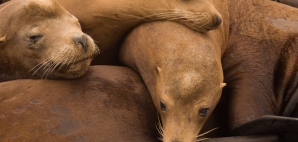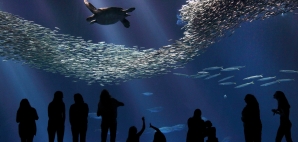eDNA for Quantitative Macroorganism Marine Animal Monitoring of Ocean Waves
« Back to Mechanisms and dynamics of...
eDNA for Quantitative Macroorganism Marine Animal Monitoring of Ocean Waves
Obtaining a census of marine life is important to understanding changes in marine ecosystems that result from stressors such as overfishing, ocean acidification, hypoxia, pollution and biological invasions. Traditional monitoring depends on individuals who count marine populations. It is invasive, expensive time-consuming and error-prone. This project proposes to measure marine populations more efficiently by sequencing environmental DNA (eDNA) in water samples – that is, evaluating tissue cells and waste shed by marine life to measure the distribution, diversity and abundance of the organisms present. It would fulfill an urgent need for accurate and efficient marine animal monitoring tools. It would be especially useful for identifying the presence of endangered animals, migrating animals, marine mammals or invasive species.
News & Press Releases

New Tool Offers Near Real-Time Info About Marine Species »
Scientists with Stanford's Center for Ocean Solutions propose using genetic techniques as a low-cost, quick way to collect near real-time knowledge of environmental conditions.
By Julia Turan, intern,

Scientists Identify Marine Life From DNA in Seawater »
Innovative tool that examines tissue and cells left in water promises new way to monitor ocean species
By Liz Hambleton, Science Communications Early Career Fellow,
Media Coverage
How Many Fish in the Sea? Genetic Testing Could Answer That »
Woods postdoctoral scholar Jesse Port explains how he uses DNA testing to reveal which organisms have been in the Monterey Bay.
By Lauren Sommer,
